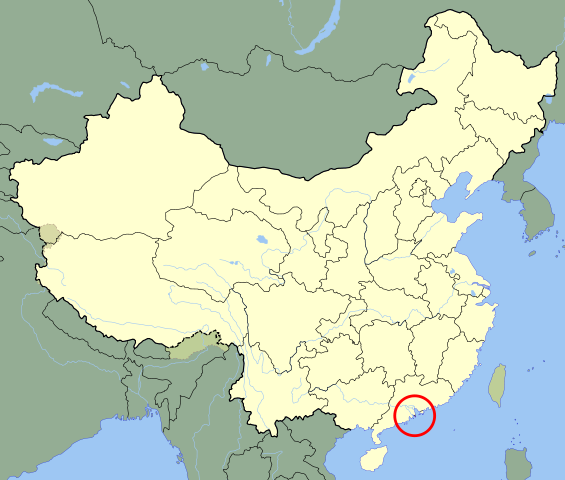How to Lose a Language in 10 Days
Alright, so we've all lost things. We sometimes lose our keys. Occasionally we lose our heads. Kate Hudson taught us how to lose a guy (hence the title). Heck, even Elizabeth Bishop wrote a whole poem about it ("One Art"). But what about a language; how can you lose a language? Boy are you in for a treat. Lucky for you we're going to answer that by looking at a real-life example: Patuá. Read about how the Macanese are losing their language of Patuá and cross your fingers you don't leave your language hiding somewhere.
Patuá
So before we look at how to lose this beautiful language, let's find out a little about it. Patuá is the language of the indigenous Eurasian community of Macau that developed in Malacca, Portugal's main south-east Asian base, during the first half of the sixteenth century. As the Portuguese trading route expanded, a number of Portuguese chose to settle in Macau, and the need for a common language was born.
Patuá eventually became the language of the Macanese, a community borne of intermarriages between mostly Portuguese men and Chinese women. Patuá, belonging to the Portuguese Creole language family, blends Portuguese with Cantonese and Malay, and played an important role in social and commercial development between the sixteenth and nineteenth centuries. There are currently thought to be only around fifty speakers of Patuá remaining in Macau—the Maquista—as well as possibly a few hundred scattered among the Macanese diaspora who don't use it, but can.
Photo via Wikimedia
A silent taboo
Much like the children of Mexican descent in the US who were once encouraged not to speak Spanish when growing up, Patuá lost its voice when public education began to be taught solely in Portuguese. This lead to Patuá becoming stigmatised, and its speakers thought of as uneducated, because Patuá became a language solely of the home, or older generations. In turn this has resulted in the majority of those few remaining Patuá speakers being elderly; with UNESCO classifying Patuá as critically endangered as of 2009, it's thought that Patuá will die out with this generation.
Loss of interest
To those of us who have learned a popular language only to find it lose that popularity, the loss of interest in a language can be particularly understood. We may still speak the language, know its structure and every nuance, even put the effort in to keep our language skills up to date so we don't lose the language ourselves.
But when there are external influences losing interest in that language, the best we can hope for is a cyclical revival of it in years to come. Take Russian as an example: this was a popular language to learn in America during the Cold War that then fell out of favour, but with our current political climate is likely to see a resurgence again. Could the same be true of Patuá in years to come?
Learning a new language? Check out our free placement test to see how your level measures up!
So what determined the loss of interest in Patuá? Well, it stems from Macau being handed back to China by Portugal in 1999. Macau today is quite different from 1999, with Chinese making up 95% of the population, and more than 30% of Macau's tourists originating from mainland China. The usefulness of Patuá has therefore been lost to Cantonese.

Photo via Flickr
Neglect
Another major influence on the loss of Patuá resulting from Macau being handed back to China, is that Macau has become part of the thriving casino industry, with more than 80% of its economy coming from gambling. To make Macau more appealing to would-be gamblers, gone is the interest in local culture, including its language, and in place is a homogeneous representation of casinos just about everywhere across the world.
If it's easier to attract tourists by having everything to hand in a more widely spoken and understood language, what incentive is there to the government to promote Patuá, a language spoken by so few? Any efforts to keep the language alive are made solely by the few remaining speakers, who promote the Macanese culture by taking part in Macau's annual arts festival, producing plays performed in Patuá by local people.
A little hope?
Because there are lovers of endangered languages everywhere, including Macau. Perhaps the Macanese can reforge their friendships with Patuá as pride in Macanese culture is reestablished, use social media to spread its words, and use all this technology we have, to keep Patuá thriving!




